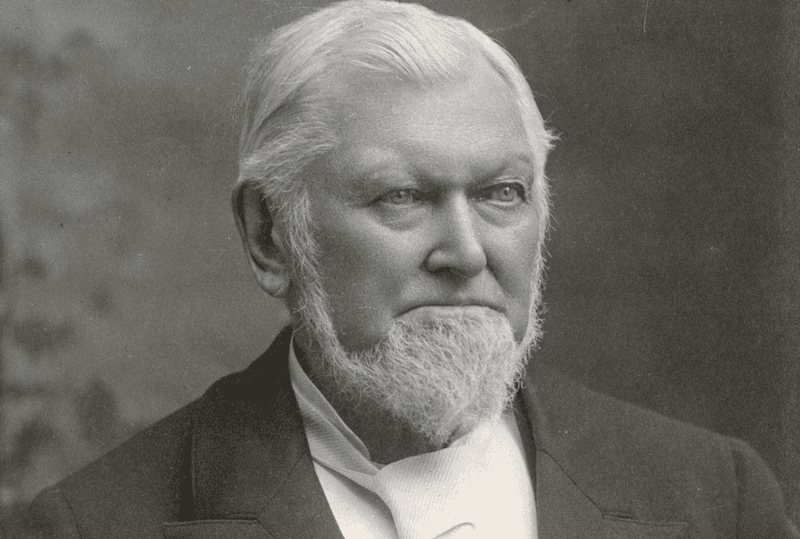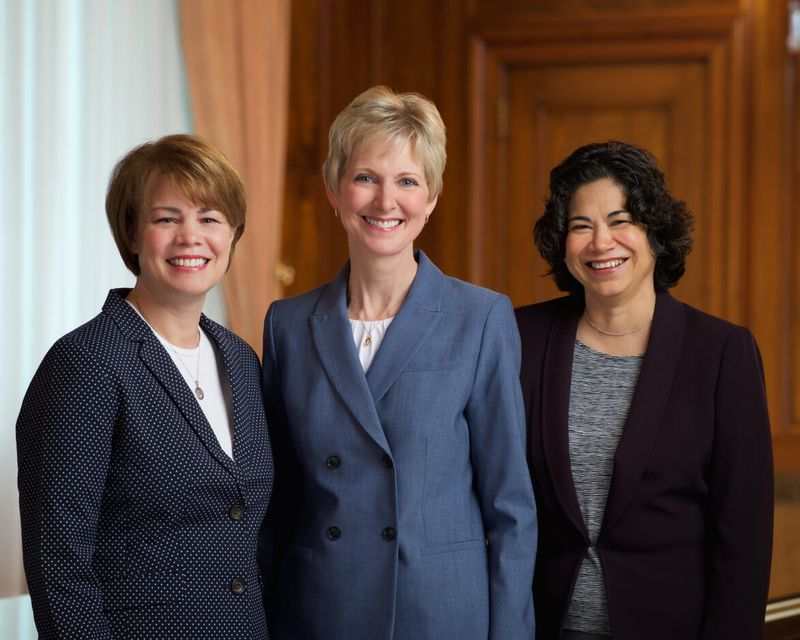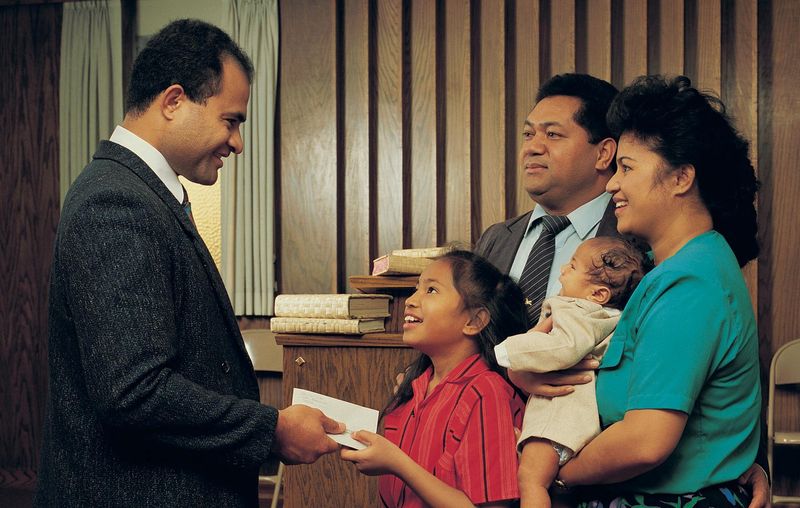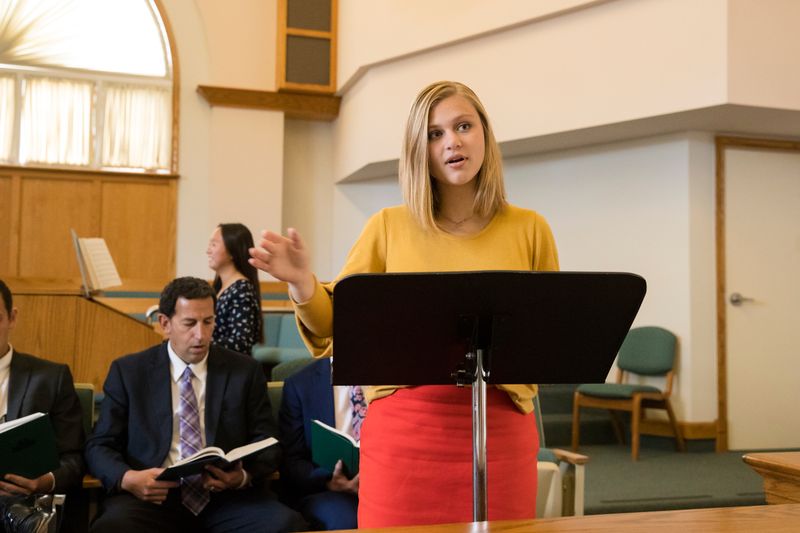Mormonism often faces misunderstandings that don’t reflect the actual beliefs and practices of The Church of Jesus Christ of Latter-day Saints. Many stereotypes have persisted despite being outdated or simply incorrect.
By separating fact from fiction, we can better understand what members of this faith truly believe and how they live their daily lives according to their religious guidelines.
1. Not All Mormons Have Large Families
Family planning remains a personal choice for Latter-day Saints. While the faith values families and children as blessings, there’s no doctrine mandating a specific family size.
Many Mormon couples have average-sized families of 2-4 children, similar to national averages. Economic circumstances, health considerations, and personal revelation guide these decisions.
The stereotype of enormous Mormon families stems from historical patterns when large families were common across all American demographics, not just among church members.
2. Mormons Definitely Have Fun
Dance parties, sports tournaments, and game nights regularly fill LDS church calendars. The faith promotes wholesome recreation while avoiding activities that involve substances like alcohol.
Church buildings often include basketball courts and stages for performances. Youth programs organize camping trips, service projects, and social events designed to build friendships while maintaining standards.
Many famous entertainers, athletes, and comedians are practicing Latter-day Saints who find joy within their faith’s boundaries.
3. Political Diversity Exists
Mormon political affiliations span the entire spectrum from progressive to conservative. While Utah tends to vote Republican, areas with LDS populations outside the Mountain West show greater political diversity.
Church headquarters explicitly maintains political neutrality and encourages members to vote according to their conscience. The faith has taken specific positions on moral issues while leaving most political decisions to individual members.
Senate Majority Leader Harry Reid and conservative commentator Glenn Beck represent opposite political poles while sharing the same faith.
4. Women Pursue Education and Careers
LDS women earn advanced degrees and build successful careers across all professional fields. The church actively encourages education for all members regardless of gender.
Prominent Mormon women include former Michigan Governor Jennifer Granholm, author Stephenie Meyer, and numerous executives, scientists, and entrepreneurs. Many balance professional achievements with family responsibilities according to personal circumstances.
While motherhood is honored, the church supports women making their own educational and career choices based on individual situations.
5. Polygamy Ended Over a Century Ago
The Church of Jesus Christ of Latter-day Saints officially abandoned plural marriage in 1890. Any member practicing polygamy today faces excommunication from the mainstream church.
Groups practicing polygamy, sometimes portrayed in media, are from splinter organizations with no connection to the main LDS Church. These fundamentalist groups represent less than 1% of those with Mormon heritage.
Modern church members are as likely to be uncomfortable with the concept of polygamy as anyone else in contemporary society.
6. Jesus Christ Is Central to the Faith
The name itself—The Church of Jesus Christ of Latter-day Saints—places Jesus at the center of the faith. Chapels feature images of Christ, and Sunday services focus on His teachings and atonement.
Members view Jesus as divine, the literal Son of God, and humanity’s Savior. Their unique scriptures, including the Book of Mormon, testify of Christ’s divinity and mission.
While some theological differences exist with traditional Christianity regarding the nature of the Godhead, the centrality of Jesus Christ in salvation is unmistakable in Mormon doctrine.
7. A Global Religion, Not a Cult
With over 16 million members worldwide across 170 countries, the LDS Church operates universities, humanitarian programs, and a global missionary effort. Its organizational structure resembles mainstream denominations with local congregations led by lay ministers.
Members participate freely in society as doctors, politicians, athletes, and neighbors. They maintain relationships with people of all faiths and backgrounds.
Religious scholars classify Mormonism as a distinct branch of Christianity rather than a cult, noting its institutional transparency and members’ integration in society.
8. Temple Garments Are Sacred, Not Magical
Temple garments represent sacred covenants similar to religious clothing in many faiths. These white undergarments remind wearers of promises made to God, much like a Jewish prayer shawl or Catholic scapular.
Members don’t attribute supernatural protective powers to these garments. Rather, they symbolize spiritual commitment and modesty.
Mocking these garments is considered disrespectful, akin to ridiculing a nun’s habit or a Muslim’s hijab. The church asks for the same respect afforded to other religious vestments.
9. Women Hold Significant Leadership Roles
Women lead major church organizations that oversee millions of members worldwide. The Relief Society, one of the oldest and largest women’s organizations globally, operates under female leadership at every level.
Female leaders speak at worldwide conferences, serve on influential councils, and direct programs for children and young women. Their voices shape policy decisions and curriculum development.
While priesthood ordination remains male-only, women perform sacred ordinances in temples and exercise significant institutional authority within their spheres of responsibility.
10. Caffeine Rules Are Misunderstood
The health code known as the Word of Wisdom specifically prohibits “hot drinks,” interpreted as coffee and tea. Nowhere does it mention caffeine specifically.
Many Mormons enjoy caffeinated sodas, chocolate, and other caffeine-containing products. Even BYU, the church-owned university, now sells caffeinated beverages on campus.
The focus is on avoiding addictive substances rather than caffeine itself. Individual members make personal choices about energy drinks and other caffeinated products based on the spirit of the teaching.
11. Friendships Beyond Religious Boundaries
Mormon congregations actively welcome visitors of all faiths. Community service projects frequently involve interfaith cooperation, and members are encouraged to be good neighbors regardless of others’ beliefs.
Children attend public schools, participate in community sports, and develop friendships without religious restrictions. The church teaches respect for all faiths and finding common ground with people of diverse backgrounds.
Many Latter-day Saints report that their closest friends include people of different religions or no religion at all.
12. Sunday Worship Strengthens Community
Sunday services bring members together for spiritual renewal and social connection. The main meeting includes communion (called sacrament) and talks given by regular members rather than professional clergy.
Children attend Primary classes while teens and adults participate in age-appropriate discussions. These gatherings build supportive relationships that extend beyond Sundays into everyday life.
Unlike the stereotype of rigid, somber meetings, Mormon services often include laughter, personal stories, and practical application of gospel principles.
13. Health Guidelines Promote Wellbeing
The Word of Wisdom health code predated modern nutritional science by encouraging whole grains, fruits, vegetables, and limited meat consumption. Beyond prohibitions against alcohol, tobacco, coffee and tea, it promotes positive health practices.
Research shows Latter-day Saints have lower cancer rates and longer life expectancy than the general population. Many members enjoy hiking, sports, and fitness activities as part of their holistic approach to health.
Mental health is increasingly emphasized alongside physical wellbeing, with church resources addressing depression, anxiety, and stress management.
14. Tithing Builds Faith and Community
Contributing ten percent of income helps fund church operations worldwide without debt. These voluntary donations support building maintenance, educational programs, and humanitarian aid without enriching church leaders, who serve without salary.
Members report that tithing builds personal financial discipline and gratitude. The practice dates back to biblical times and is considered a spiritual principle of giving back to God.
Financial assistance flows back to members in need through a welfare system that provides food, employment help, and other resources during difficult times.
15. Meaningful Sabbath Observance
Sunday activities focus on worship, family togetherness, and rest from commercial pursuits. Many families enjoy special meals, game nights, and nature walks while avoiding shopping or entertainment venues.
This practice creates a rhythm of renewal in busy lives. Children learn values through family discussions, music, and simple traditions that make Sundays distinctive.
Far from restrictive, many members describe Sabbath observance as liberating—a guilt-free day to set aside professional demands and focus on relationships and spiritual renewal.
16. Family Home Evening Strengthens Bonds
Monday nights are reserved for family time through a practice called Family Home Evening. Parents and children gather for short lessons, games, treats, and planning family matters.
Single adults often form groups to enjoy this tradition together. The structure is flexible—some families keep it simple with a 15-minute activity while others plan elaborate themed evenings.
Research suggests this intentional family time correlates with lower juvenile delinquency rates and stronger parent-child communication, regardless of the specific activities chosen.
17. Daily Scripture Study Provides Guidance
Morning or evening scripture reading creates touchpoints for spiritual reflection. Families might gather before breakfast, while individuals often study during quiet moments throughout the day.
Beyond the Bible, members read the Book of Mormon and other unique texts they consider scripture. Digital apps have made this practice more accessible, allowing busy members to listen during commutes or exercise.
Rather than rigid requirements, the emphasis is on consistent connection with sacred texts that provide moral guidance and spiritual insights for daily challenges.
18. Chastity Viewed as Empowering
Sexual intimacy is reserved for marriage between husband and wife. Young people learn that physical relationships carry emotional and spiritual dimensions best experienced within committed relationships.
Contrary to portraying this as repressive, the church presents chastity as empowering—focusing on self-mastery and meaningful connection. Dating is encouraged with clear boundaries to help relationships develop based on mutual respect and shared values.
After marriage, couples are encouraged to develop fulfilling intimate relationships as an important aspect of their bond.
19. Temples Represent Sacred Spaces
Unlike regular chapels where anyone can attend Sunday services, temples require specific standards of preparation. These beautiful buildings serve as places for sacred ceremonies including marriages meant to last beyond death.
Members see temple attendance as spiritually rejuvenating—a retreat from worldly pressures. Inside, the atmosphere is quiet and reverent with simple, symbolic ceremonies focused on eternal commitments.
Before entering, members interview with local leaders to confirm their adherence to core beliefs and practices, viewing this preparation as part of the temple’s sacred nature.
20. Missionary Service Shapes Young Adults
Young men (typically 18-20) and women (typically 19-21) volunteer for missions lasting up to two years. They fund much of their expenses while adapting to new cultures, languages, and challenges far from home.
Beyond religious teaching, missionaries provide community service and develop skills in leadership, public speaking, and cultural adaptation. Many describe this experience as foundational to their personal development and career preparation.
Not all members serve missions, and it remains a personal choice despite cultural expectations. Those who do often return with broader perspectives and greater independence.
21. Modest Dress Reflects Values
Clothing choices emphasize dignity rather than drawing attention to physical attributes. For many members, this means avoiding extremely short shorts, mini-skirts, or tops that expose midriffs or shoulders.
Men and women both follow modesty guidelines, though specific applications vary by individual and cultural context. The emphasis is on representing oneself through personality and character rather than physical display.
Many members appreciate how these guidelines simplify decisions about appropriate attire while allowing for personal style and cultural expression within broad parameters.
22. Good Citizenship Is a Religious Duty
Members are taught that obeying laws, voting, and community involvement are religious responsibilities. The church’s 12th Article of Faith explicitly states belief in “being subject to kings, presidents, rulers, and magistrates, in obeying, honoring, and sustaining the law.”
Service in military, government, and civic organizations is encouraged. Many members volunteer for community boards, disaster relief, and local improvement projects.
Political engagement is valued regardless of party affiliation, with emphasis on respectful discourse and finding common ground despite differences.
23. Avoiding Pornography Protects Relationships
The church teaches that pornography distorts healthy sexuality and undermines marital intimacy. Resources for prevention and recovery are widely available through church programs.
Open conversations about media literacy help young people develop critical thinking about sexual content in entertainment. The focus extends beyond simple prohibition to understanding how exploitation and objectification harm human dignity.
Support groups assist those struggling with compulsive use, emphasizing compassion rather than shame. The goal is healthy relationships built on mutual respect rather than unrealistic expectations derived from media.
24. Media Choices Reflect Personal Values
Members select entertainment aligned with their values rather than following rigid bans. The guideline “virtuous, lovely, of good report or praiseworthy” helps individuals evaluate movies, music, and games.
Many enjoy mainstream entertainment while being selective about content. Parents often use media as teaching opportunities, discussing messages in popular culture rather than isolating children from it entirely.
Some members create music, films, and literature that explore meaningful themes while avoiding gratuitous elements, contributing positively to the broader cultural landscape.
25. Church Service Develops Leadership Skills
Every member receives opportunities to serve in various positions, from teaching children to managing finances. These unpaid “callings” rotate periodically, allowing individuals to develop diverse skills.
A shy teenager might lead youth activities while a seasoned executive teaches toddlers. This system develops public speaking, organization, and interpersonal abilities across socioeconomic backgrounds.
Members report that service positions push them beyond comfort zones while providing supportive mentoring. Many credit church service with developing professional skills that benefited their careers and community involvement.
26. Monthly Fasting Promotes Compassion
Once monthly, members abstain from food and drink for approximately 24 hours. The money saved from skipped meals is donated to help those in need through the church’s welfare system.
Beyond hunger relief, this practice develops self-discipline and empathy for those who face food insecurity regularly. Many report increased spiritual sensitivity and mental clarity during these periods of voluntary abstinence.
Children gradually adopt this practice as they mature, starting with skipping one meal before working up to the full fast. Medical exceptions ensure safety for pregnant women, the elderly, and those with health conditions.
27. Financial Self-Reliance Is Taught Early
Children learn budgeting through dividing allowance into savings, tithing, and spending categories. Young adults attend financial workshops covering debt avoidance, emergency funds, and wise investing principles.
The church operates employment centers, self-reliance courses, and education assistance programs. Many congregations maintain food storage to prepare for emergencies, a practice that proved valuable during pandemic shortages.
While promoting self-sufficiency, the faith also emphasizes generosity—members experiencing abundance are encouraged to help others achieve stability rather than pursuing luxury.
28. Family Relationships Take Priority
Weekly family councils address schedules, challenges, and celebrations in an open forum where even young children contribute. Parents are encouraged to have regular one-on-one time with each child to strengthen individual relationships.
Extended family connections are maintained through reunions, history projects, and regular communication. Even church meetings are scheduled to maximize family time—Sunday services consolidated into a two-hour block specifically to give families more time together.
Work-life balance is emphasized, with leaders regularly reminding members that career success shouldn’t come at the expense of family relationships.
29. Forgiveness Is Practiced, Not Just Preached
Reconciliation processes help resolve conflicts between members through facilitated conversations. When harm occurs, structured steps guide both parties toward healing rather than harboring resentment.
Self-improvement focuses on progress rather than perfection. Members acknowledge that everyone makes mistakes and deserves compassion during growth processes.
Regular personal reflection encourages identifying areas for improvement without dwelling on past failures. This balanced approach reduces both self-righteousness and self-condemnation while promoting genuine change.
30. Personal Revelation Guides Individual Choices
Members seek divine guidance through prayer, meditation, and scripture study for major life decisions. This personalized approach allows adaptation to individual circumstances while maintaining core principles.
Young people are taught to develop this skill early when choosing education paths, careers, and marriage partners. Parents encourage children to seek personal inspiration rather than making all decisions for them.
Church leaders emphasize that personal revelation operates within certain boundaries—it won’t contradict established doctrine but provides individualized application of principles to specific situations.






























